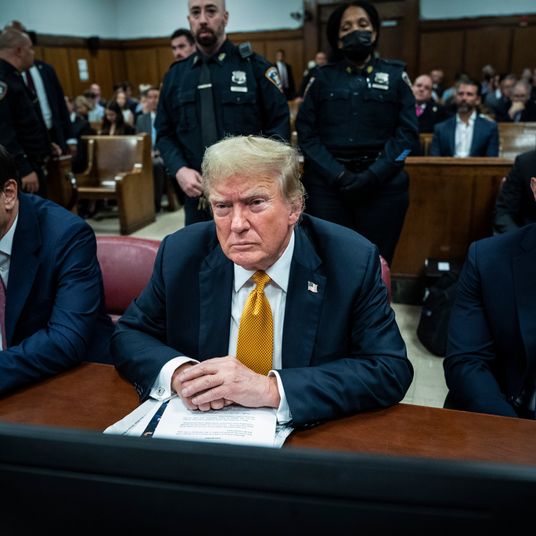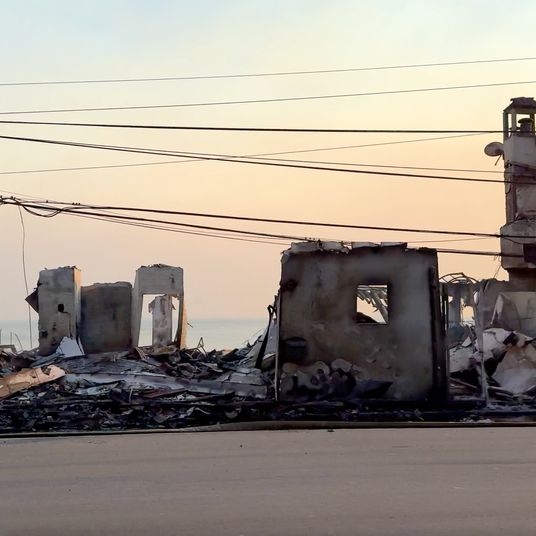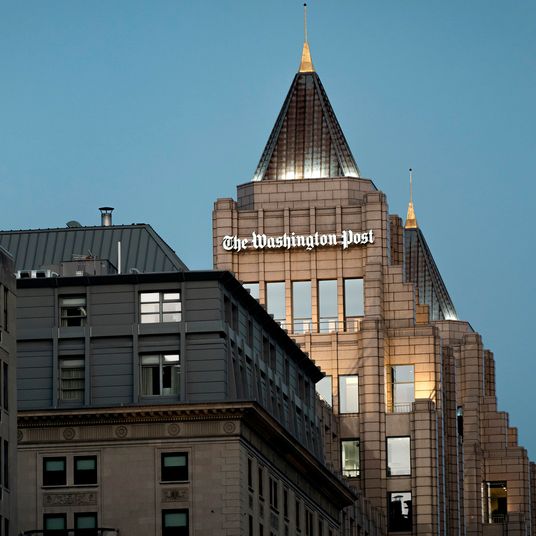As the world wonders about the whereabouts of Muammar Qaddafi, who claimed in a radio address on Wednesday that he left his Tripoli compound as a “tactical move,” reports emerged that the dictator made an unusual phone call to Russian World Chess Federation boss Kirsan Ilyumzhinov from wherever he was hiding. Why? We don’t know. But the relationship between the two — and a bizarre chess game they played three months into NATO’s bombing campaign over Libya — sheds some light on why the Qaddafi regime is crumbling so rapidly after a six-month stalemate with rebels.
Expert analysis of outtakes from Qaddafi’s two-hour game with Ilyumzhinov (carried only on Libyan state TV, but with a montage released to Reuters) strongly suggests the highly publicized match was a fake, and that Qaddafi barely has any knowledge of how to play the game of chess at all.
“He might have known how the pieces move,” explains Michael Khodarkovsky, an international master chess player and the vice president of the Kasparov Chess Foundation. “But when the game slows down, he doesn’t look like he’s using his chess skills effectively. I think it was staged just ‘for the shooting,’ rather than real play.”
Mr. Khodarkovsky, the vice-president of Gary Kasparov’s chess foundation and the former head coach of the U.S. Women’s Olympiad chess team, says several things leap out from the Reuters footage that suggest no actual chess was played during those two hours.
Most glaringly, at various moments it appears that Ilyumzhinov is instructing Qaddafi on how to use the pieces. Then there’s the fact that the moves of both men were not released to the wider chess community by the Federation, which is standard practice in high-profile matches. Even the location of the pieces themselves in the video footage is suspect.
“The knight was developed on edge of board, not towards the center,” says Mr. Khodarkovsky, “which is very strange. It’s hard to tell what is going on.”
(Gaining the upper hand in a chess match usually hinges on controlling the four center squares, rather than the periphery of the board.)
Ilyumzhinov himself has become a bit of an Oscar the Death Cat for dictators; he paid a similarly timed visit to Saddam Hussein during the final throes of the Baathist regime in Iraq. A former president himself (of the Republic of Kalmykia, part of the Russian Federation), Ilyumzhinov’s visit was in part an attempt to mitigate Qaddafi’s status as an international pariah. The chess game between the two men promulgated the of notion of Qaddafi as a leader firmly, almost serenely, in control.
As the New York Times’ John Burns wrote at the time, “Here was the Libyan leader, nearly three months into a NATO bombing campaign that lately has been focused unapologetically on killing him, sitting down calmly and pensively for a game that prizes, above all, the ability of exponents to concentrate — to put aside the mundane distractions of life and ponder the complexities on the board before them.”
Shortly after the televised match, Mr. Ilyumzhinov told Russian radio program Ekho Moskvye that Qaddafi had been “very calm” during their match, and that he “plays chess normally, adequately.”
Ilyumzhinov and his aides did not respond to emails from Daily Intel seeking an interview about the Qaddafi match. World Chess Federation CEO Geoffrey Borg promised to forward questions about Mr. Qaddafi’s match to Mr. Ilyumzhinov in Moscow. At deadline, there was no response.
It’s unclear why Ilyumzhinov and Qaddafi have such a close bond — it’s almost certainly not because of the chess. But his great show of focus during the chess match, combined with the nonsensical game play and lack of planning underneath, is a symbol of sorts for these last chaotic days of his regime. As Khodarkovsky put it, “There is no strategy, I believe.”





























